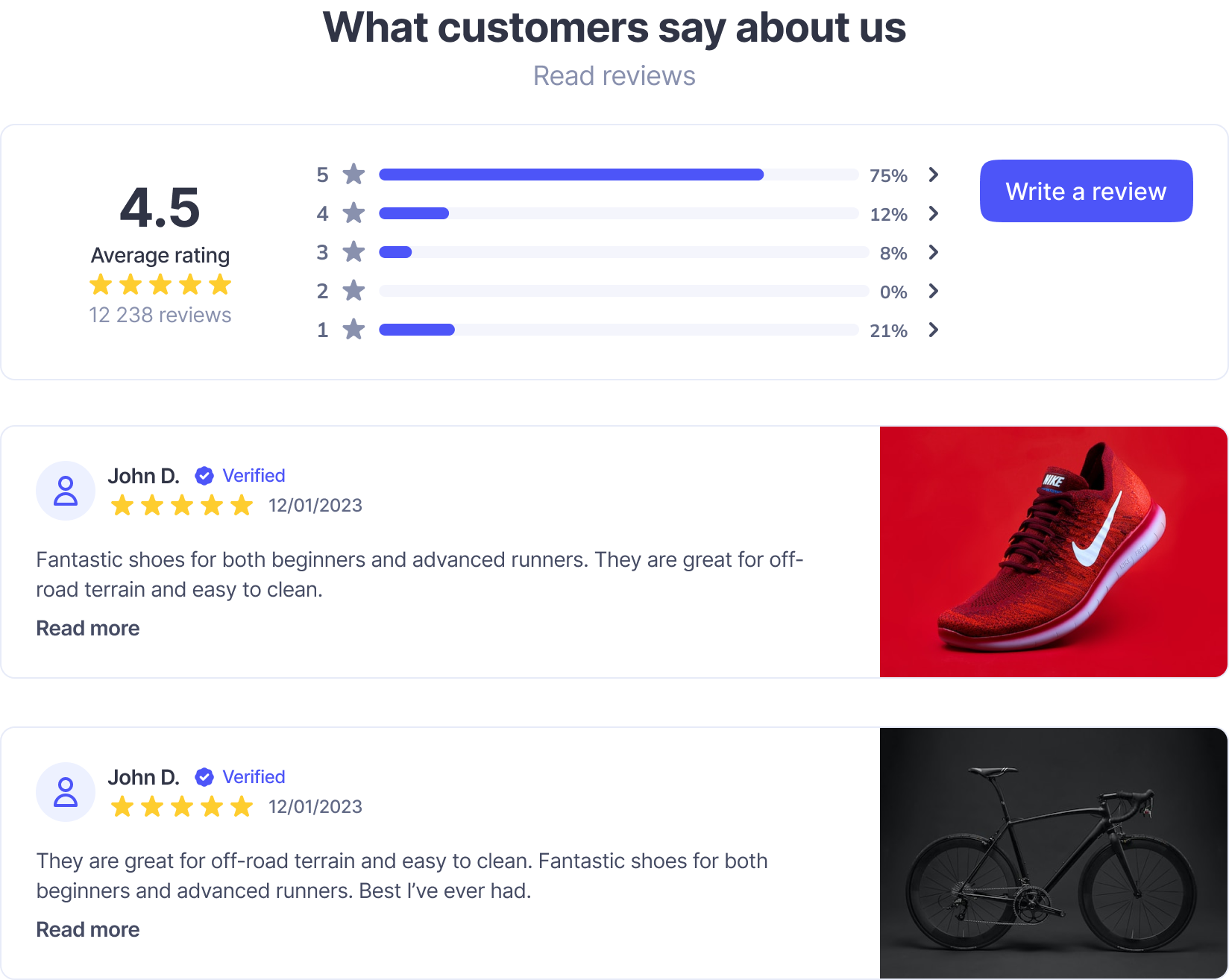

FTC Proposes Rule to Ban Fake Reviews and Testimonials - Crack Down on Fake Reviews

Table of contents
Introduction
In this digital age, online reviews and testimonials play a significant role in consumer decision-making process. From product reviews to customer feedback, consumers heavily rely on these insights to make informed choices. However, the rise of fake reviews has created a sense of skepticism and distrust among consumers. To protect consumers and promote fair competition, the Federal Trade Commission (FTC) has proposed rule on fake reviews and testimonials. This article explores the repercussions of fake reviews, the proposed rule, and its potential impact on businesses and consumers.
Buying or selling fake reviews: a deceptive practice
1. The prevalence of fake reviews:
- With the increasing demand for reliable online reviews, unethical entities have resorted to using fake reviews to manipulate perception. FTC rule on fake reviews shows, that online reviews are really important and should be authentic.
- Fake reviews can be positive or negative, and are often written to promote or demote a product or service falsely.
- Companies, individuals, and even competitors engage in writing or selling consumer reviews and testimonials.
2. The impact of fake reviews:
- Consumers heavily rely on online reviews to make trusted purchasing decisions.
- False testimonials mislead customers, leading to dissatisfaction and mistrust.
- Honest companies suffer when competitors use fake reviews to gain an unfair advantage, and stopping the violators and should help level the playing field.
- Fake reviews can also suppress negative reviews, giving consumers a skewed perception of a product or service.
How to collect reviews from real customers?
If you're looking for effective ways to avoid fines while also enhancing your online reputation with authentic and trustworthy customer reviews, Rating Captain has the perfect solution for you. Their software offers a smart and ethical approach to gathering more positive reviews from your real customers, without resorting to the unethical practice of buying or fabricating testimonials from within your company.
Rating Captain's user-friendly software allows you to streamline the process of collecting customer reviews. With just a few clicks, you can send automated emails to your customers, extending an invitation to share their experiences on your Google My Business profile. By actively engaging with your customers and encouraging them to leave their feedback, you not only improve your online visibility but also demonstrate a genuine interest in understanding and addressing their needs.
Rating Captain doesn't stop at general customer reviews. Their software lets you gather product-specific feedback, showcasing the strengths and benefits of each offering. By integrating review widgets on your website, potential customers see real people praising your products, building trust and credibility that sets you apart from competitors.

The FTC proposes a rule to ban fake reviews
1. Objective of the proposed rule:
- The FTC seeks to crack down on deceptive advertising in the digital age, including consumer reviews and testimonials.
- Federal Trade Commission proposed a new rule that aims to ensure a fair playing field for honest companies and protect consumers from misleading information.
2. Provisions of the proposed rule:
- The rule means to attack deceptive advertising and would prohibit the use of fake reviews and testimonials, whether written for one product or multiple products.
- Marketers would be banned from selling or obtaining fake consumer reviews and testimonials and for reviews hijacking.
- Known deceptive practices, such as using fake followers and views, would also be addressed by the proposed rule.
- The proposed rule would trigger civil penalties for violators, leveling the playing field for honest companies.
The impact on businesses and consumers
1. Positive implications for honest companies:
- Honest companies will benefit from the rule, as it will deter competitors from using illicit review and endorsement practices.
- The playing field will become more level, allowing honest businesses to compete fairly and gain customer trust.
2. Protection for consumers:
- Consumers will be shielded from deceptive advertising, as the proposed rule aims to root out fake reviews.
- The rule will instill confidence in consumers, ensuring that reviews and testimonials are genuine and honest, facilitating better purchasing decisions.
FTC cites deceptive practices and the role of generative AI in fake reviews
In the notice of proposed rulemaking, the Federal Trade Commission (FTC) highlighted several examples of deceptive practices involving consumer reviews and testimonials from past cases. These cases serve as clear evidence of the need for action to crack down on fake reviews online. Additionally, the FTC acknowledged the growing prominence of generative AI, which poses a significant threat in enabling bad actors to generate even more convincing fake reviews.

The emergence of generative AI:
The FTC also highlighted the increasing prevalence of generative AI technology, which has the potential to make it easier for bad actors to write fake reviews. Generative AI can automate the process of producing large amounts of content, including reviews that seem genuine. This technology poses a significant challenge in identifying and distinguishing real reviews from fake ones, as it constantly evolves and becomes more adept at mimicking human writing styles and sentiments.
The FTC's awareness of deceptive practices involving consumer reviews and testimonials underscores the importance of taking action against fake reviews. By acknowledging the dangers associated with generative AI, the FTC demonstrates its commitment to staying ahead of evolving technologies used to deceive consumers.
In response to these challenges, the proposed rule aims to address deceptive practices involving consumer reviews. The FTC recognizes the need to equip itself with the necessary tools and expertise to combat these emerging threats effectively.
By proposing a rule that specifically targets the use of fake reviews, the FTC sends a strong message to bad actors who engage in deceptive advertising practices. Furthermore, this proactive approach reflects the FTC's commitment to safeguarding consumers' trust and maintaining the integrity of online reviews.
FAQs about the Proposed Rule
Q: How does the FTC define fake reviews?
A: Fake reviews refer to reviews or testimonials by someone who has not used a product or service or misrepresents their experience.
Q: What penalties will violators of the proposed rule face?
A: Violators of the rule may face civil penalties under the FTC Act.
Q: Will the proposed rule address fake reviews generated by AI algorithms?
A: Yes, the proposed rule will address deceptive practices involving consumer reviews, including the emerging issue of generative AI-generated review (for example the proposed rule would prohibit buying positive or negative reviews on review websites).
Conclusion
The FTC's proposed rule to ban fake reviews and testimonials demonstrates their commitment to cracking down on deceptive practices and ensuring a fair marketplace for consumers and businesses. By eliminating the prevalence of fake reviews, the proposed rule aims to protect consumers from misleading information and provide honest companies with a level playing field. The rule also sends a strong message to bad actors engaging in deceptive advertising practices involving consumer reviews. With this proposed rule, the FTC aims to maintain transparency, credibility, and trust in the world of online reviews.
Please rate this article
Blase Konkurrenz mit Google Maps weg
Verwalten und verfolgen Sie die Sichtbarkeit Ihrer Google Business-Profile

